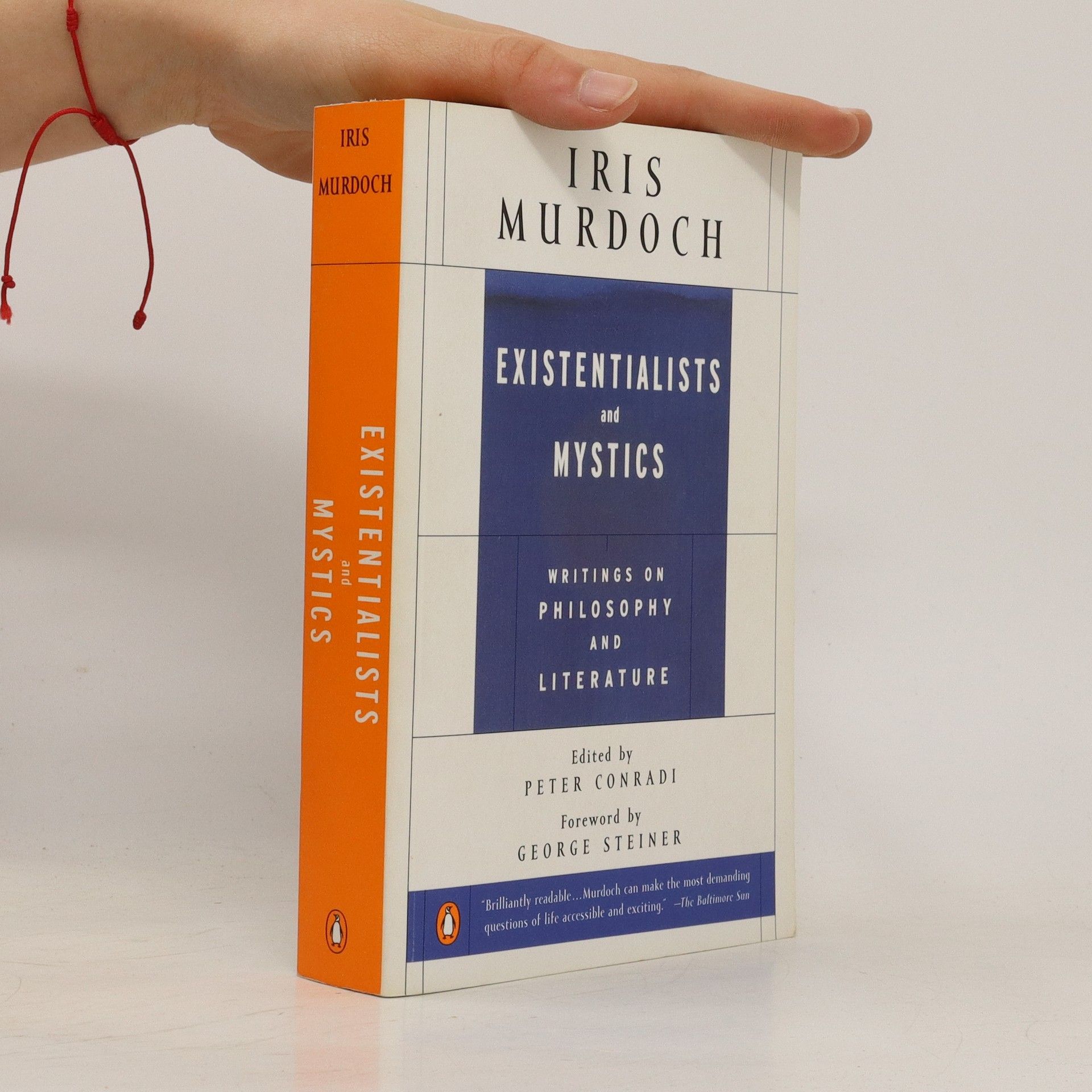In qualunque storia del romanzo moderno, a prescindere dai metodi e dal gusto di chi la scrive, Tolstoj e Dostoevskij sono inevitabilmente destinati a occupare i capitoli centrali. Nelle loro opere si espandono e giungono a piena maturazione i caratteri maggiormente significativi della grande narrativa dell'Ottocento: il senso del drammatico della storia e dei conflitti sociali, la riflessione individuale, le passioni più pure e quelle più torbide, l'introspezione e l'analisi minuziosa e profonda dell'animo umano. In "Tolstoj o Dostoevskij" Steiner pone a confronto i due maestri, riconoscendo nelle loro opere le massime espressioni della scuola russa, e il momento in cui essa si solleva con più decisione al di sopra delle altre esperienze europee.
George Steiner Libri
Francis George Steiner è stato un saggista, romanziere, filosofo, critico letterario ed educatore. Per oltre trent'anni ha collaborato con The New Yorker, pubblicando più di duecento recensioni. La sua scrittura approfondisce spesso questioni profonde della cultura umana, del linguaggio e dell'esistenza, esplorando il rapporto tra arte ed etica. Lo stile di Steiner è riconosciuto per la sua profondità intellettuale, il suo linguaggio ricco e il suo approccio provocatorio all'analisi letteraria.


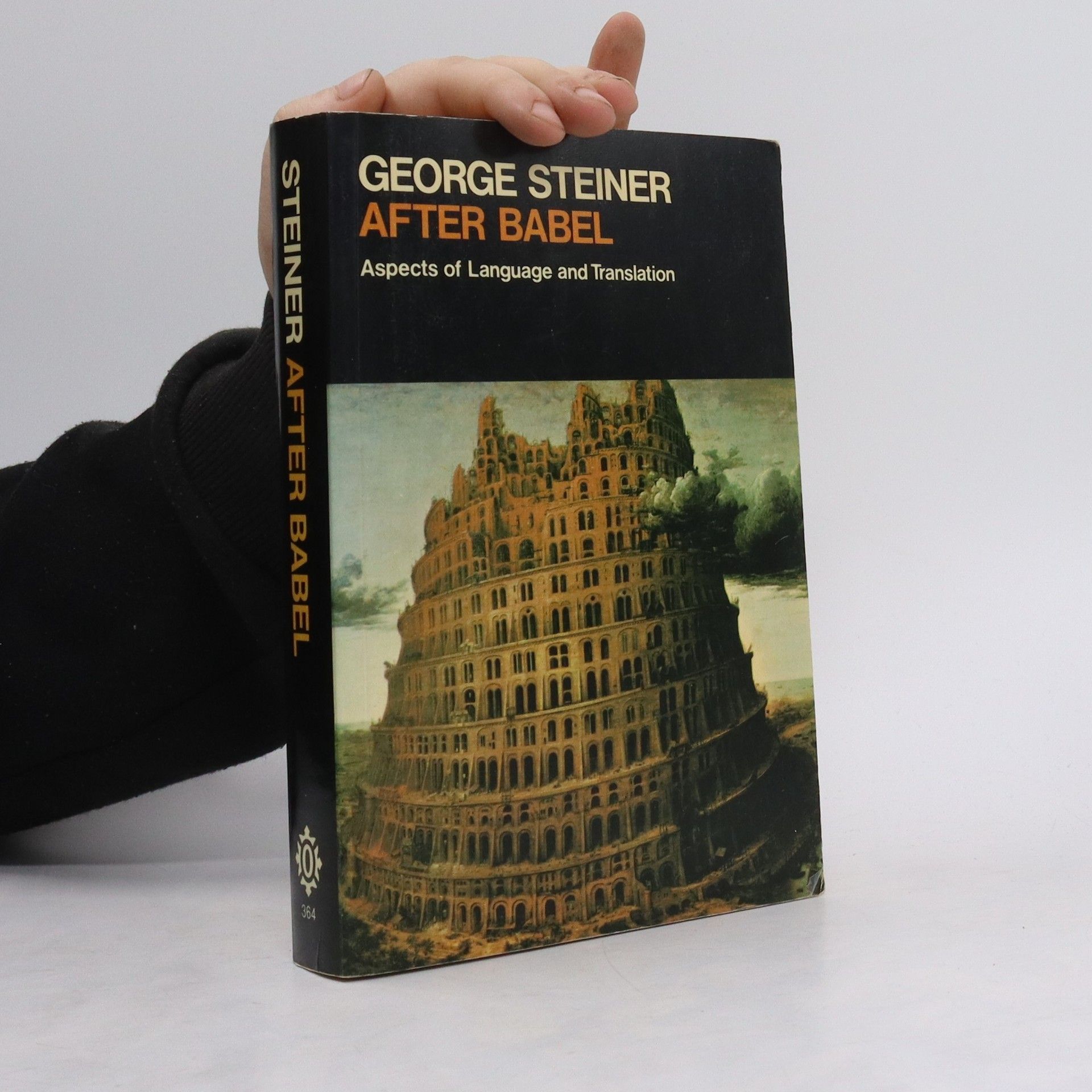
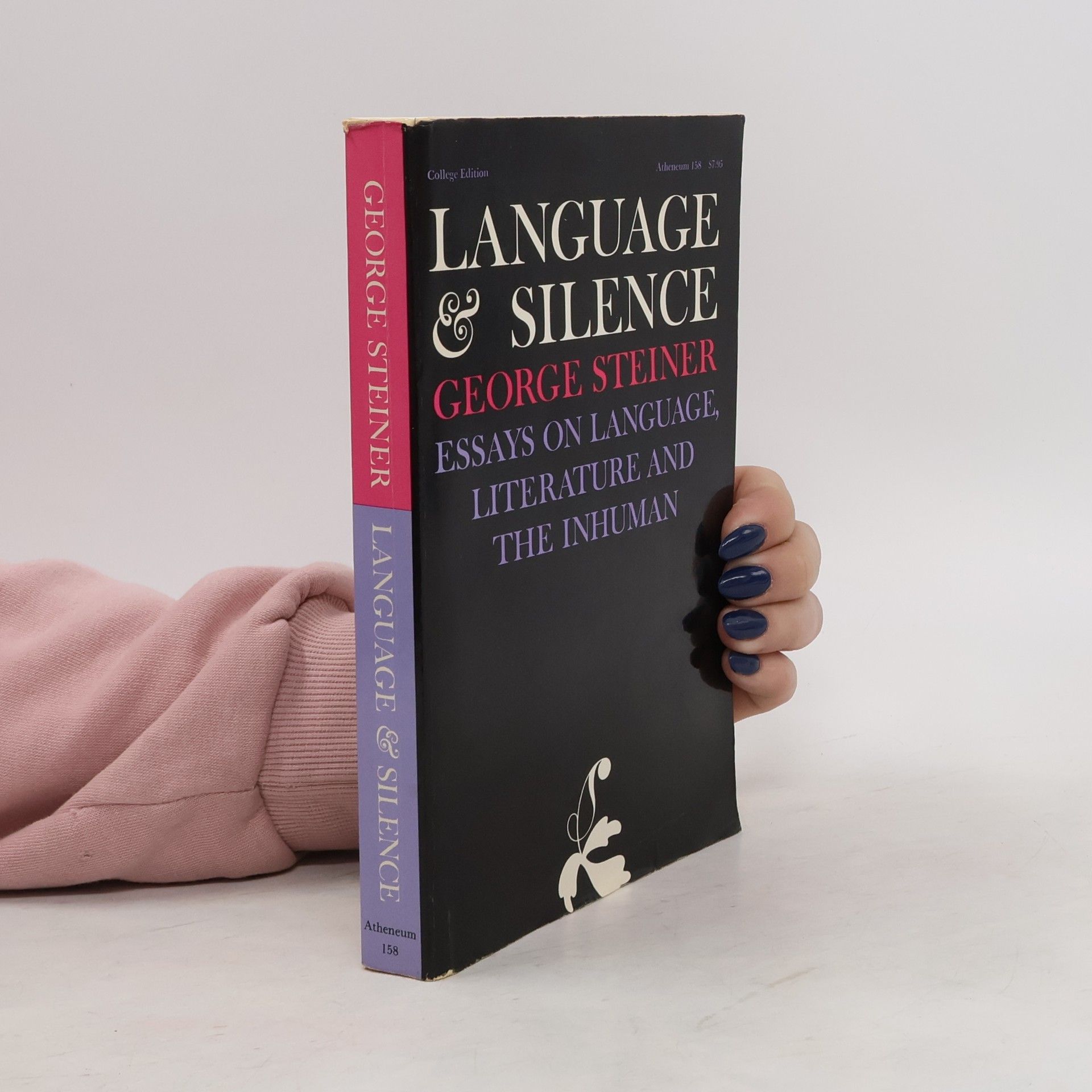
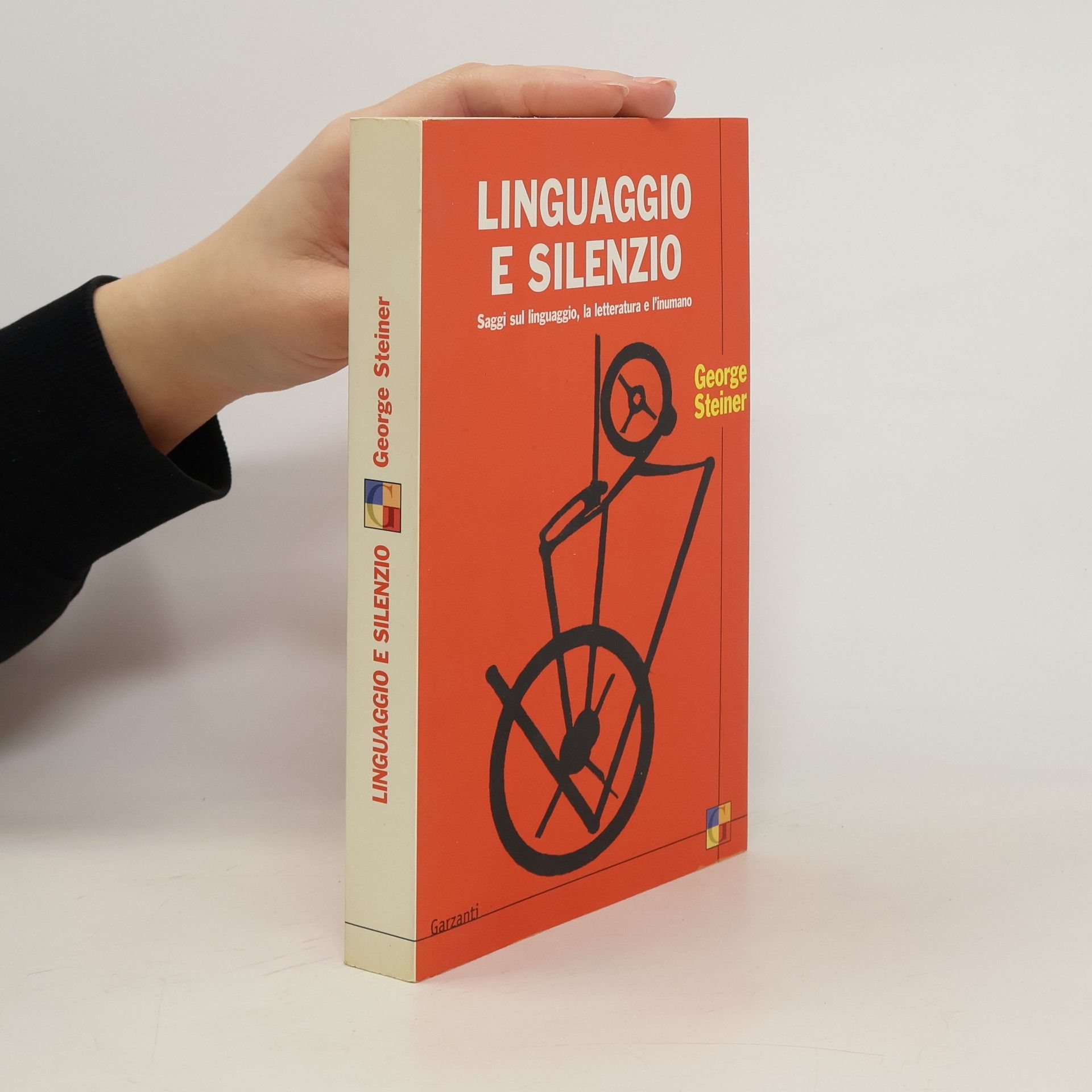
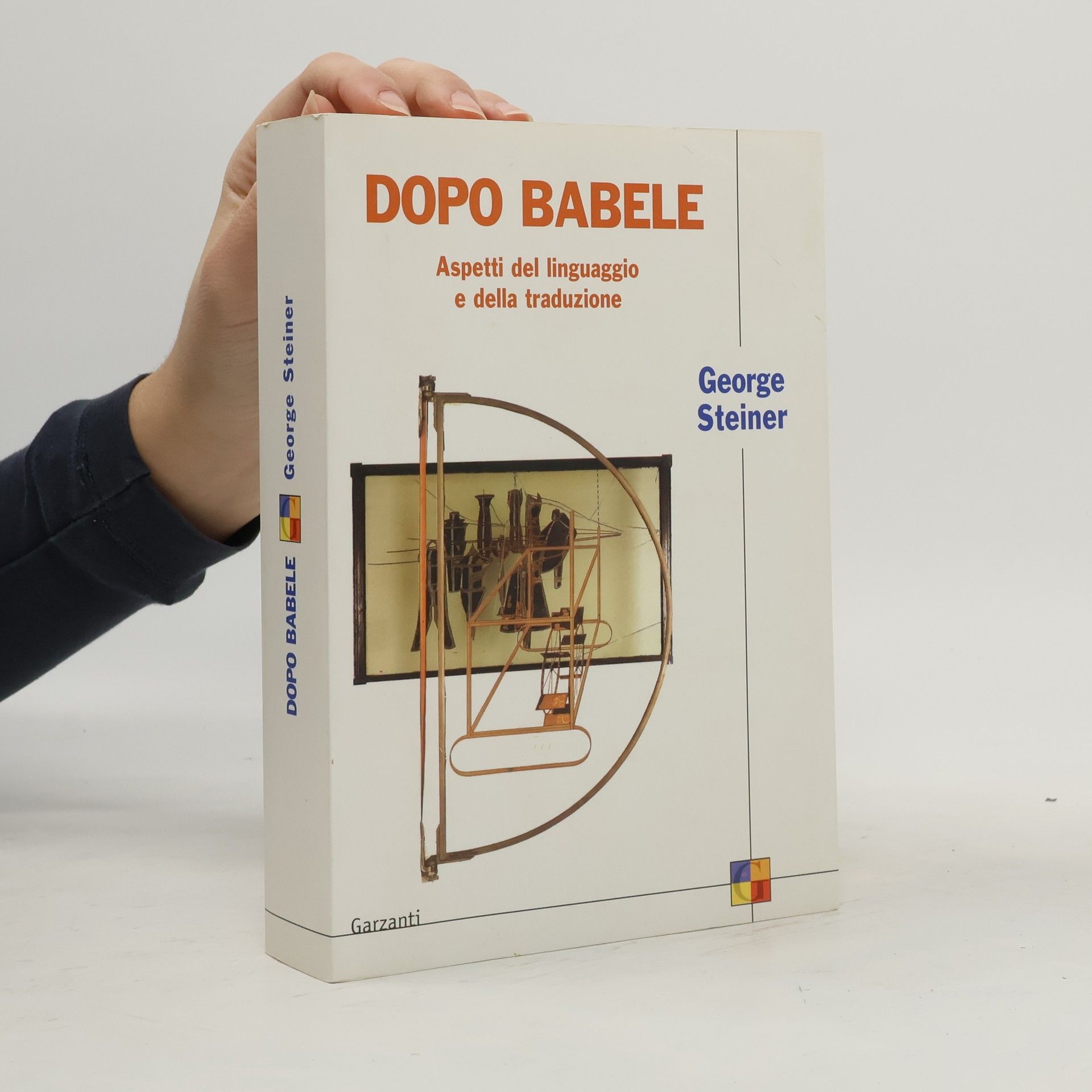
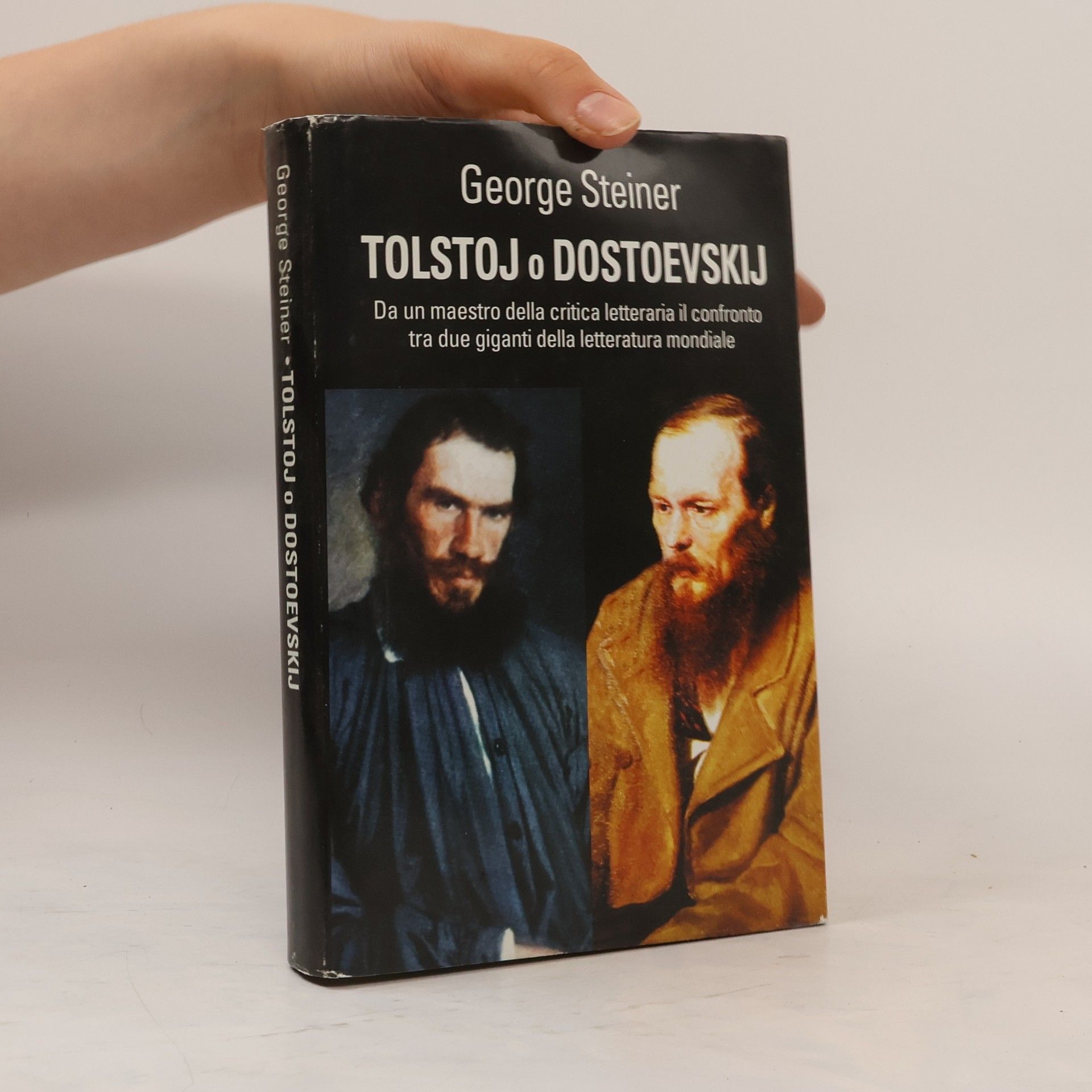
Dopo Babele è ormai diventato un classico. Il saggio di George Steiner ha aperto la strada a un nuovo campo di discussione: ha costituito infatti il primo tentativo particolareggiato di situare la traduzione al cuore della comunicazione umana, e di esaminare come le costrizioni alle quali è sottoposta la traducibilità tra le lingue diverse richieda un'indagine filosofica sulla consapevolezza e sul significato del significare. Steiner constata che la traduzione è formalmente e praticamente implicita in ogni atto della comunicazione: "capire" significa sempre "decifrare", anche quando la comunicazione avviene all'interno della stessa lingua.
Linguaggio e silenzio
- 330pagine
- 12 ore di lettura
Il testo offre una riflessione sul ruolo della cultura nella società contemporanea, sullo stato della letteratura e sulle responsabilità degli scrittori e degli artisti in genere. Nel corso del Novecento nazismo e stalinismo, con le loro atroci falsificazioni, hanno tentato di distruggere l'umanesimo centroeuropeo. Le tecniche di persuasione dei mass media e della pubblicità favoriscono da decenni la diffusione della volgarità, dell'approssimazione, della cupidigia. D'altro canto scienze come la matematica e la fisica pretendono dal linguaggio una esattezza assoluta. Steiner offre una impietosa diagnosi delle malattie che stanno privando la parola di forza e legittimità.
A collection of essays and articles about the life of language, and its role in a world where words are used to manipulate as often as they are used to convey meaning Language and Silence is a book about language—and politics, meaning, silence, and the future of literature. Originally published between 1958 and 1966, the essays that make up this collection ponder whether we have passed out of an era of verbal primacy and into one of post-linguistic forms—or partial silence. Steiner explores the idea of the abandonment of contemporary literary criticism, from the classics to the works of William Shakespeare, Lawrence Durell, Thomas Mann, Leon Trotsky, and more.
After Babel. Aspects of language and translation
- 520pagine
- 19 ore di lettura
\Why, over the course of history, have humans developed thousands of different languages when the social, material, and economic advantages of a single tongue are obvious? Steiner argues that different cultures’ desires for privacy and exclusivity led to each developing its own language. Translation, he believes, is at the very heart of human communication, and thus at the heart of human nature. From our everyday perception of the world around us, to creativity and the uninhibited imagination, to the often inexplicable poignancy of poetry, we are constantly translating—even from our native language.
\Why, over the course of history, have humans developed thousands of different languages when the social, material, and economic advantages of a single tongue are obvious? Steiner argues that different cultures’ desires for privacy and exclusivity led to each developing its own language. Translation, he believes, is at the very heart of human communication, and thus at the heart of human nature. From our everyday perception of the world around us, to creativity and the uninhibited imagination, to the often inexplicable poignancy of poetry, we are constantly translating—even from our native language.
Existentialists and Mystics
- 576pagine
- 21 ore di lettura
Best known as the author of twenty-six novels, Iris Murdoch also made significant contributions to the fields of ethics and aesthetics. Collected here for the first time in one volume are her most influential literary and philosophical essays. Tracing Murdoch's journey to a modern Platonism, this volume includes incisive evaluations of the thought and writings of T. S. Eliot, Jean-Paul Sartre, Albert Camus, Simone de Beauvior, and Elias Canetti, as well as key texts on the continuing importance of the sublime, on the concept of love, and the role great literature can play in curing the ills of philosophy. Existentialists and Mystics not only illuminates the mysticism and intellectual underpinnings of Murdoch's novels, but confirms her major contributions to twentieth-century thought.
Steiner, one of the great literary minds of the 20th century, relates the story of his life and the ways that people, places, and events have colored the central ideas and themes of his work. "A profoundly beautiful autobiographical work".-- Literary Review
No passion spent : essays 1978-1995
- 448pagine
- 16 ore di lettura
George Steiner--one of the preeminent essayists and literary thinkers of our era--addresses issues of language and the relation of language to literature and to religion. He covers a wide range of subjects from Homer and Shakespeare to Jewish scripture, religious tradition, and the effects of the Holocaust.
